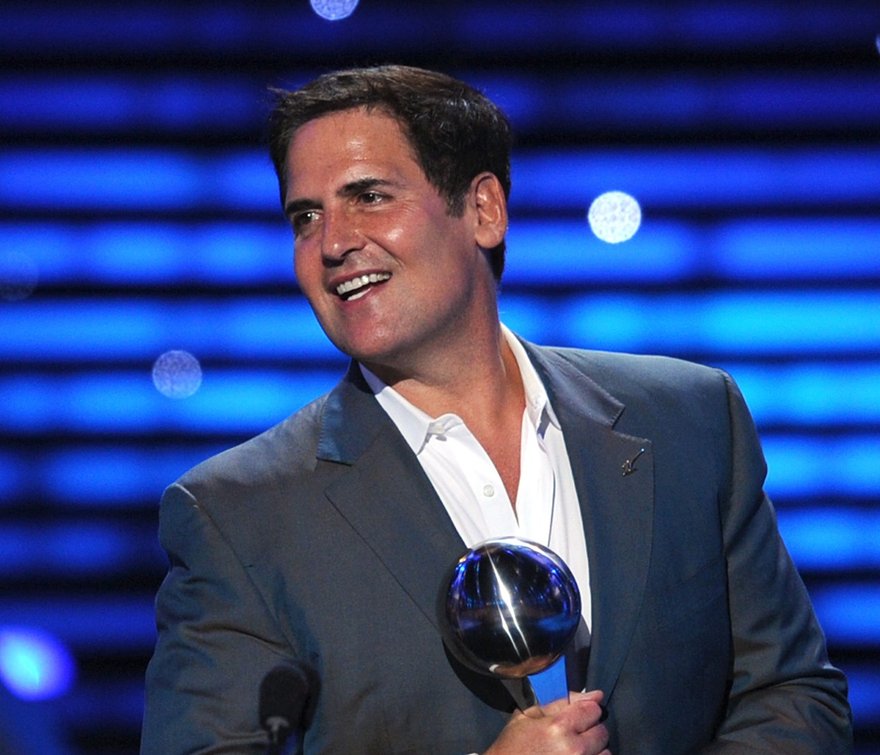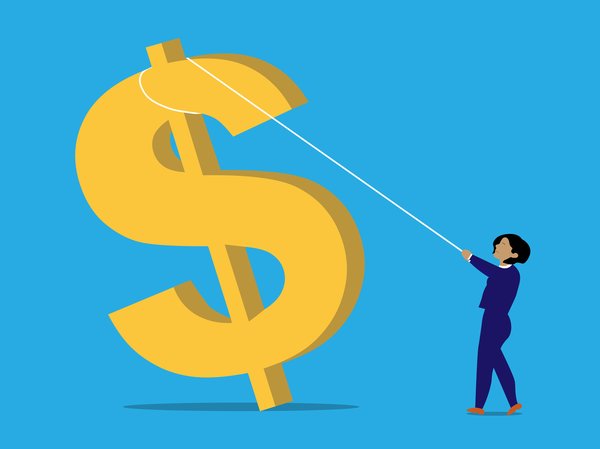Mark Cuban's investment portfolio is a mashup of disruptive tech, crypto, NFTs, small businesses, and S&P 500 stocks. The outspoken owner of the National Basketball Association’s Dallas Mavericks has amassed a fortune through his savvy investment deals -- some of which have been featured on Shark Tank, a hit show featuring Cuban.
Want to follow in his footsteps? Read on for Mark Cuban investing tips, along with his best investments and the types of companies Cuban won't touch.

Mark Cuban's investment strategy
You can glean key elements of Cuban's investment approach by watching Shark Tank. His views are also accessible from his blog, his company website, and many interviews and appearances, including a popular Reddit AMA from 2020. From these sources, I've pieced together four key strategies that shape Cuban's investment choices.
1. Disruptive tech creates long-term value.
In a 2022 interview on the podcast “The Problem with Jon Stewart,” Cuban compares streaming entertainment in the mid-1990s to today's crypto economy. Back then, streaming music wasn't as convenient as flipping on the radio or television. To stream, you needed the right software, hardware, and internet connection -- things that were less available than they are today.
Fast-forward 25 years, and the global video streaming industry is worth more than $50 billion, according to Grand View Research. The market research firm also predicts the industry will experience a compound annual growth rate of 21% into 2028.
In Cuban's view, the young crypto economy is working through obstacles that are holding back wide adoption -- just as the streaming industry did decades ago. But, over time, he says, crypto will mature and create its own economy, just like streaming did.
2. Trade with conviction.
Cuban invests in companies, concepts, and causes he's passionate about. For example, his love for technology and sports led to one of his early business successes -- a startup that later became Broadcast.com. He's also invested more than $50 million in funds and companies run by women and people of color because he believes in the business value of diversity.
“I’ve invested 50-plus million dollars in funds and companies of people of color, men and women because, you know, I think there is a unique opportunity there.” ~Mark Cuban
Cuban encourages other investors to follow their own beliefs. For example, in a Reddit AMA, he advised shareholders of meme stocks to stay true to their convictions. In his words, "If you still believe in the reason you bought the stock, and that hasn't changed, why sell?"
3. Learn from your mistakes.
"I learned some expensive lessons when I first started trading stocks. It was painful. But I tried to learn what I got right and wrong." ~Mark Cuban
Cuban admits he's made many investing and business mistakes. When talking about his failures, though, he also shares what he's learned as a result.
One of Cuban's early entrepreneurial missteps was a business selling powdered milk. He found out the hard way that people would rather pay more for the real stuff. Consequently, Cuban is more disciplined about carefully evaluating opportunities without letting assumptions color his view.
4. Don't be reactive.
In a 2010 blog post, Cuban wrote, "If you don't fully understand the risks of an investment you are contemplating, it's OK to do nothing." He repeated the "do nothing" comment in 2016 and again in 2020 during two separate market downturns.
Cuban's "do nothing" advice warns against reactivity in buying or selling. Instead of moving quickly, take time to understand your potential investments. Good companies have staying power, so you don't gain anything by rushing to buy or to sell.
Incidentally, this advice aligns with the perspective of other famous investors, including Warren Buffett.
Mark Cuban's best investments
Cuban's investment portfolio is diverse, but his largest holdings -- based on comments he's made in interviews -- are top stocks you already know: Amazon (NASDAQ:AMZN), Netflix (NASDAQ:NFLX), and Twitter (NYSE:TWTR).
1. Amazon
In a 2020 interview on “The David Rubenstein Show,” Cuban admitted to buying Amazon at $500 to $700 per share. In the first quarter of 2022, a share of the tech company's stock cost about $3,200.
Notably, Cuban said he had close to $1 billion in Amazon stock in 2019.
Amazon is best known for its massive e-commerce store, but the company does more than sell goods online. Amazon's content division distributes original programming, live sports, and local channels on Prime Video. The company additionally sells connectivity and home security devices, including Fire TV, Alexa Echo, and Ring video doorbells. Amazon is also the world's largest cloud computing service provider, ahead of Microsoft (NASDAQ:MSFT).
2. Netflix
In 2014, Cuban tweeted that he was buying Netflix stock because he thought the streaming service would be acquired. He's also said he paid $50 a share for his position.
Netflix still operates as an independent company, but its share price has risen as high as $680. The stock has struggled some since the second half of 2021 and dipped to the high-$300s in the first quarter of 2022.
Netflix makes money via subscription fees. The company has a loyal base of customers who use the streaming service for original and licensed content. A basic subscription costs $9 monthly, low enough to allow for mass adoption. While Netflix has recently faced increased competition -- notably from Disney+ -- the company remains the leader in streaming video.
3. Twitter
Cuban is a long-term holder of Twitter, adding to his position as recently as 2020. At that time, he felt Twitter was poised to outperform its social media peers once advertising recovered after the 2020 COVID-19 pandemic lockdown.
Twitter stock hit a three-year low in early 2020. It did recover, nearly tripling in value to $77 a share by early 2021. Since then, the social media stock has floundered, dipping down to the mid-$30s.
The social media service generates roughly 90% of its revenue from advertising fees. The other 10% comes from data licensing and service fees.
Mark Cuban’s crypto portfolio
Cuban is also bullish on the crypto economy. He owns Bitcoin (CRYPTO:BTC), Ethereum (CRYPTO:ETH), and Polygon (CRYPTO:MATIC). Eighty percent of Cuban's Shark Tank investments are in the blockchain and crypto space.
Investments Mark Cuban avoids
Like most investors, Cuban knows his “deal breakers” -- qualities that make an opportunity uninvestable. Three of those deal breakers are below.
1. Companies with low barriers to entry
Cuban does not like businesses with low barriers to entry. If competitors can copy the business model without friction, he will likely decline the opportunity.
Case in point: Cuban turned down an equity investment in Do Amore, an engagement and wedding ring company that generated 2021 revenue of $11.5 million. The business had momentum, but he didn't think it was sustainable.
The issue for Cuban was that Do Amore's key differentiator was its charitable activities. Other companies could easily adopt a similar approach, which would take away Do Amore's competitive advantage.
2. Companies that need a lot of capital to grow
"I have a fundamental aversion to companies that require raising hundreds of millions of dollars to do less in revenues." ~Mark Cuban
In 2013, Doorbot CEO and founder Jamie Siminoff appeared on Shark Tank to promote his smartphone doorbell. Siminoff had no takers on his company and left the show without a deal. Doorbot would later become Ring, which Amazon acquired in 2018 for more than $1 billion.
However, Cuban stands by his decision to pass on the Doorbot investment, citing the amount of capital required for the company to grow.
3. Businesses he doesn't know
Cuban gravitates toward companies and business segments he understands. He calls it the "knowledge advantage" -- using his own expertise to make better investing and business decisions. The flip side of that is avoiding investments in areas that are unknown or uninteresting to him.
Invest like Mark Cuban
Cuban plays many professional roles, including business leader, sports team owner, TV personality, and famous investor. His success in these endeavors has helped him build a net worth of more than $4 billion[CB13] .
Critical to that success has been Cuban's dedication to learning, his focus on business opportunities that interest him, and his ability to wait for the right opportunities. These are skills you can easily adopt to improve your own investing activities and fatten your own net worth over time.














